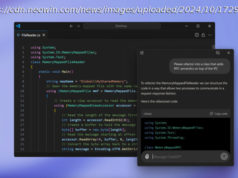Slowing growth and the trade war could restrict Beijing’s ability to get tough. Huawei has shuffled its Washington staff, apparently seeking a reset in relations.
SHANGHAI — Ever since Meng Wanzhou, the chief financial officer at the Chinese technology giant Huawei, was arrested in Canada nearly two months ago, Chinese officials have denounced the move as “wrongful” and “arbitrary” — a political affair cloaked in a judicial one.
Now that the United States has laid out its case against Ms. Meng in greater detail, neither Huawei nor the Chinese government has easy options for responding or retaliating.
Huawei, the world’s largest provider of the equipment that powers mobile phone and data networks, said on Tuesday that it was innocent of charges unveiled in Washington the day before that it had misled the United States government about its business in Iran, obstructed a criminal investigation and stolen American industrial secrets .
China’s Foreign Ministry called, once again, for the United States and Canada to release Ms. Meng, who is a daughter of Huawei’s founder and chief executive, Ren Zhengfei.
But should Ms. Meng be brought from Canada to the United States to face charges, as American officials say they plan to request before a deadline on Wednesday, Beijing will have few ways to force Washington’s hand.
China is in the middle of a trade war that it is anxious to end as its vast economy slows. Any efforts to get tough on the United States — such as by detaining American nationals, as it did to Canadians after Ms. Meng was arrested — could scuttle the negotiations.
And Huawei’s Washington operations have undergone drastic turnover as it appears to rein in its sales ambitions in America and shift tactics in its relations with the government. In the second shake-up of its American leadership in less than a year, the company is replacing Regent Zhang, its head of government affairs in Washington, with Joy Tan, currently its head of global communications.
The broad language of the Justice Department’s indictments suggests that other Huawei leaders, including Mr. Ren, a former officer in the People’s Liberation Army, might wish to exercise caution while traveling to countries that have an extradition treaty with the United States.
“If I was his lawyer, I would advise him to be careful,” said Julian Ku, a professor of law at Hofstra University.
But that kind of caution could make it more difficult still for Huawei to hold on to its business in places like Europe. Already, the United States has been applying pressure on all sides against Huawei, fearing that the Chinese government could use the company’s gear to sabotage other countries’ communication networks.
Previously, Canadian officials had said that Ms.






